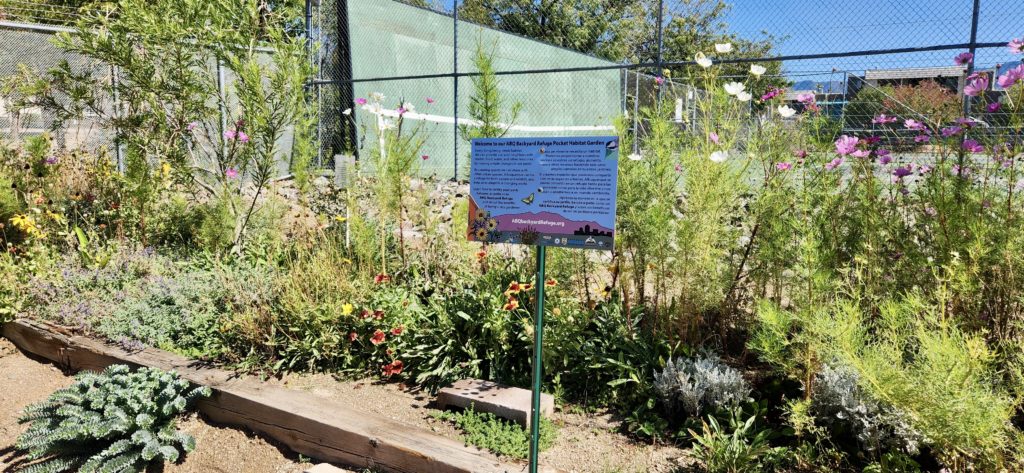
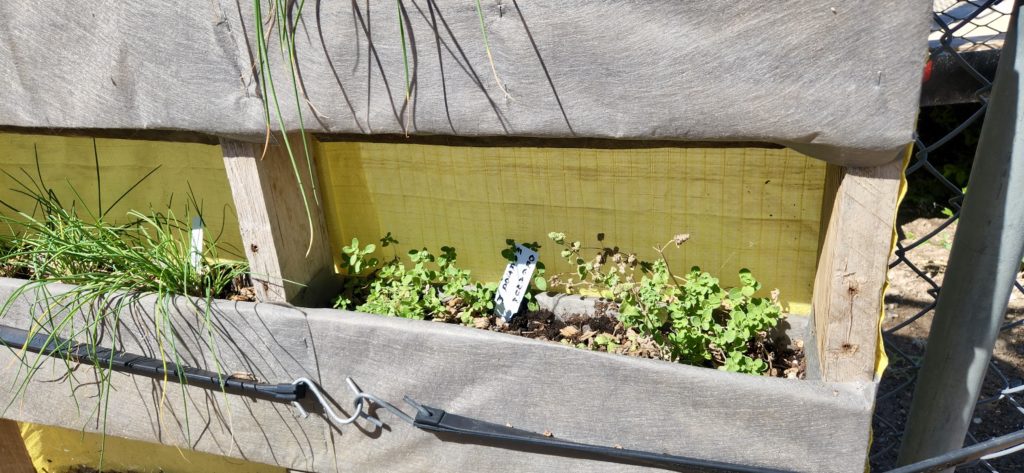
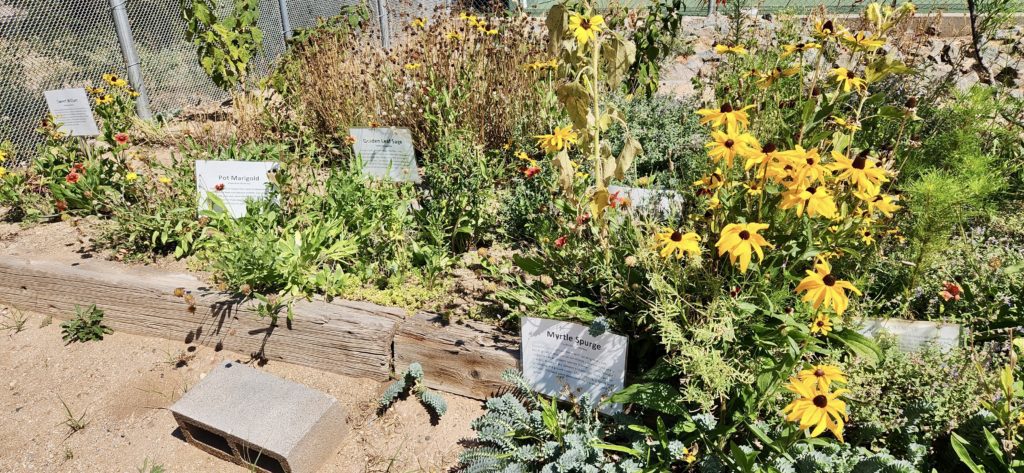
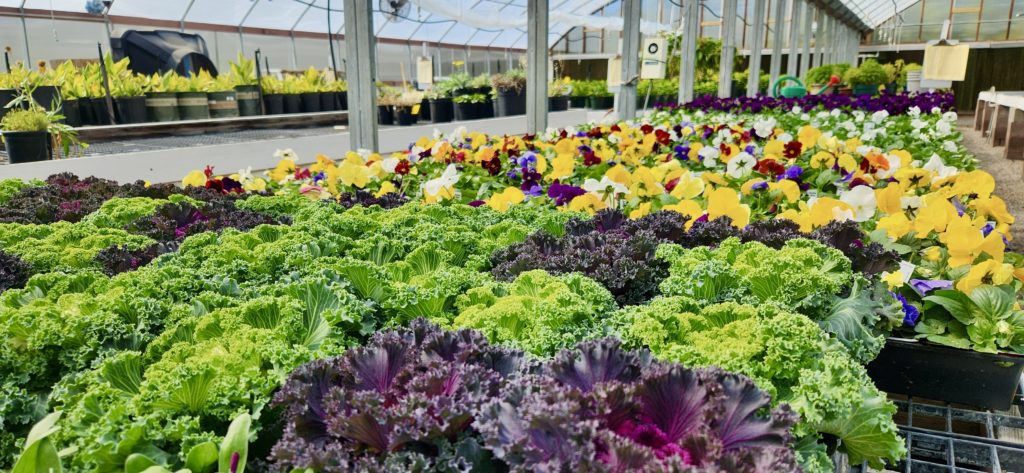
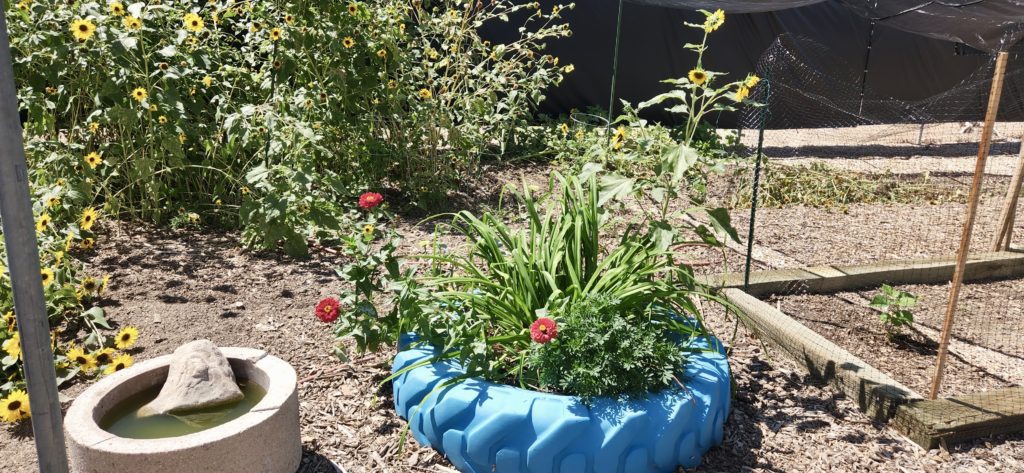
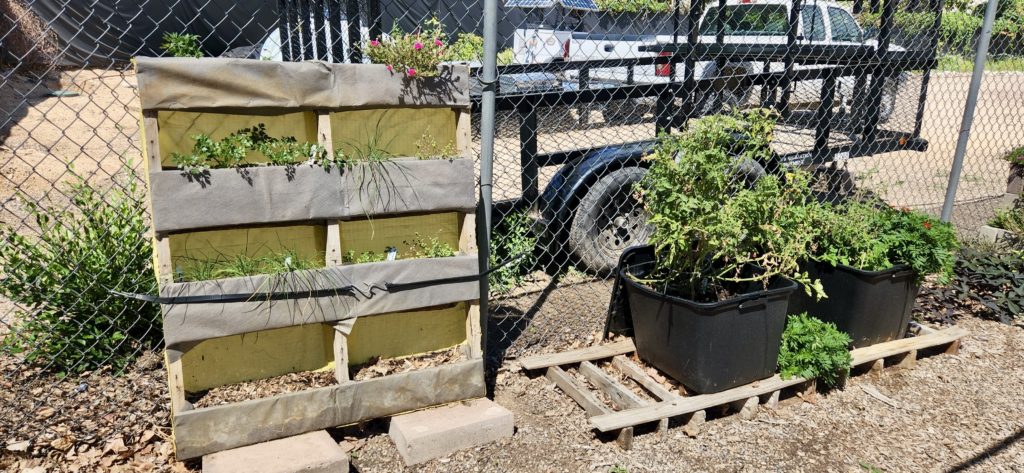
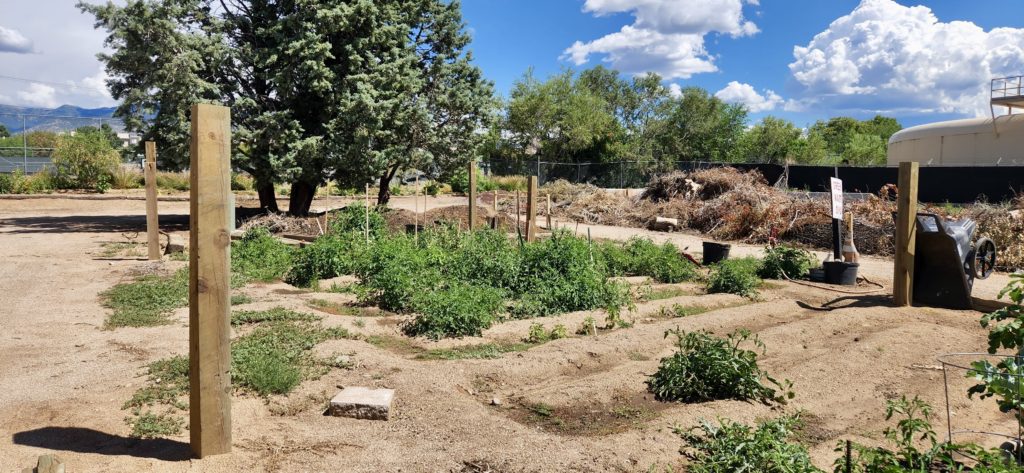
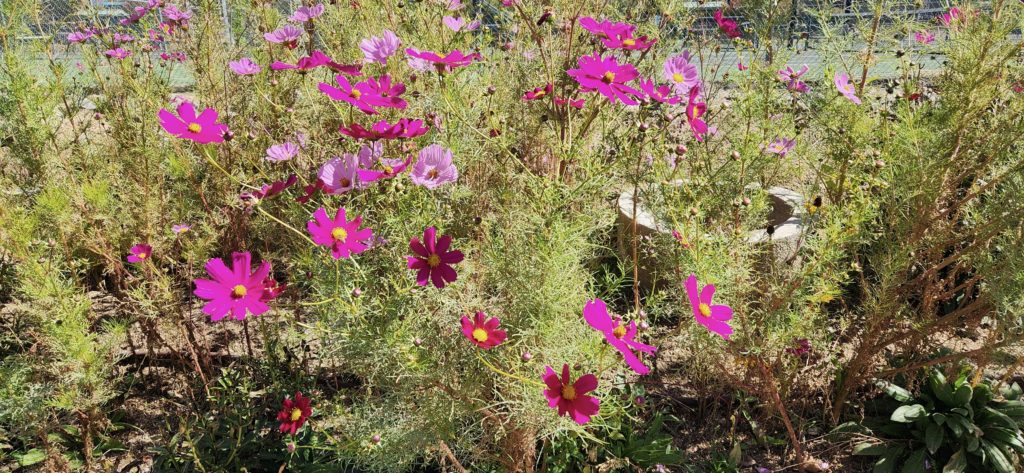
Albuquerque has become a pollinator oasis with native plants all throughout city medians, parks and flower beds the last few years, and it’s all thanks to the Parks and Recreation City Greenhouse.
Master Horticulturist and New Mexico State University and Eldorado High School Alum Dan Humbles said the city greenhouse, which is tucked away at the Arroyo Del Oso Park on Spain and Wyoming, has been there since 1977. It not only houses all the seeds and flowers placed at more than 15 parks throughout town, it also provides for the city botanical garden and supplies all the plants you see at City Hall and the Albuquerque International Sunport. The greenhouse also makes sure these plants are maintained and brought back to be nursed back to health when needed.
One of the three greenhouses on premises has been renovated recently, and each can hold 15,000 to 20,000 plants. The water system is also being renovated to conserve and to get on an improved drip system, allowing volunteers and workers more time for other duties. Besides the regular pollination gardens displayed, there is also a vegetable garden and an educational workshop garden area where residents and volunteers can learn about the tools of the trade and how to plant and maintain a garden at home.
Humbles explained the resurgence of home gardening since the pandemic has brought out more people than ever to learn and that the industry is thriving because of renewed interest. The pollinator gardens provide education as well as thousands of seeds to disperse throughout park flower beds, adding color to what would usually be dreary scenery in our desert town.
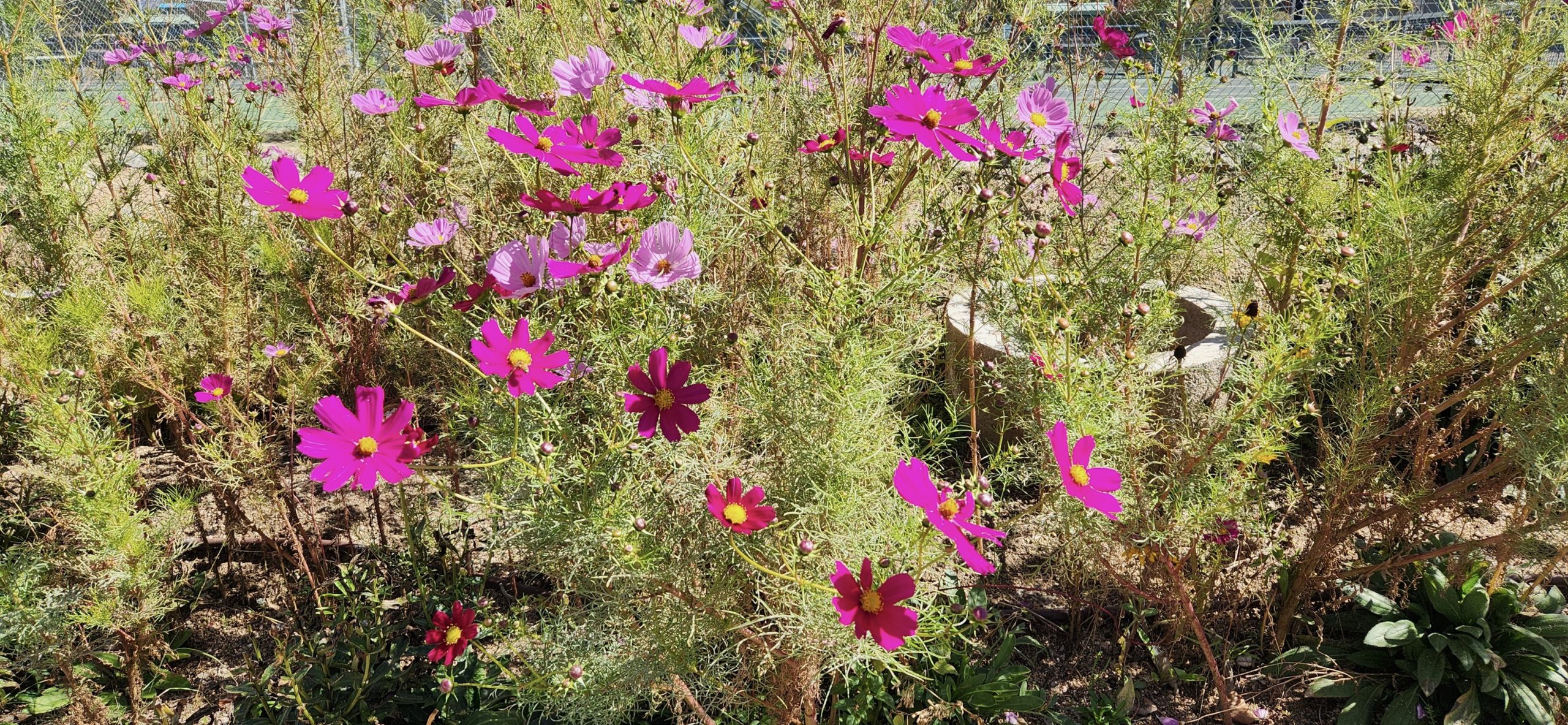
Out of the many parks and locations dedicated to preserving native flower aesthetics is the Memorial Xeriscape Garden at Albuquerque Police Northeast Command on Osuna that commemorates fallen New Mexico officers. The Xeriscape Garden is one of Humbles’ favorite projects, as he chose which flower species were planted, and the care put into the memorial garden shows from spring to fall.
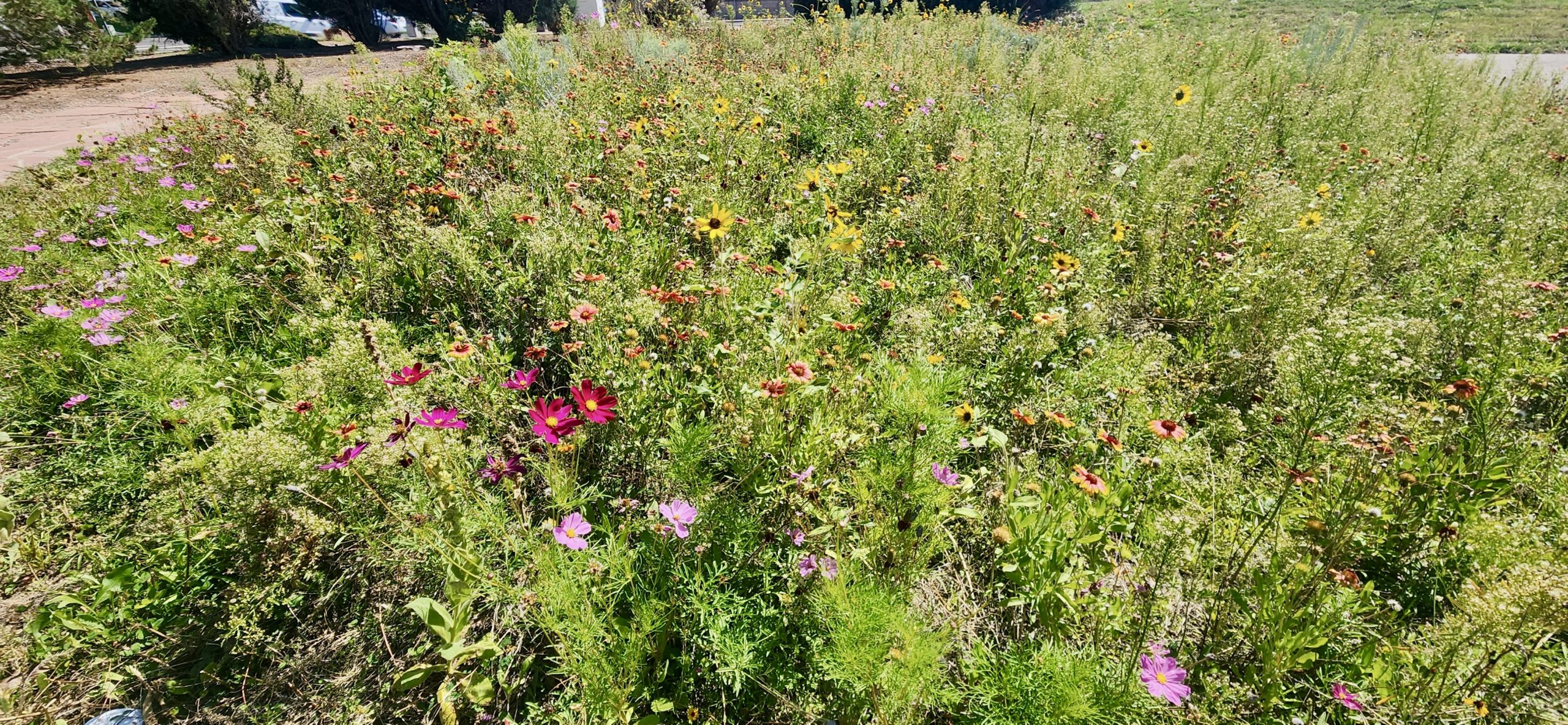
Holiday poinsettias and deadheading
Currently, greenhouse employees are getting ready to put out all the traditional holiday poinsettias one sees during the winter season. The poinsettias are dispersed in November with the hope that people enjoy seeing the holiday spirit alive and well in Albuquerque.
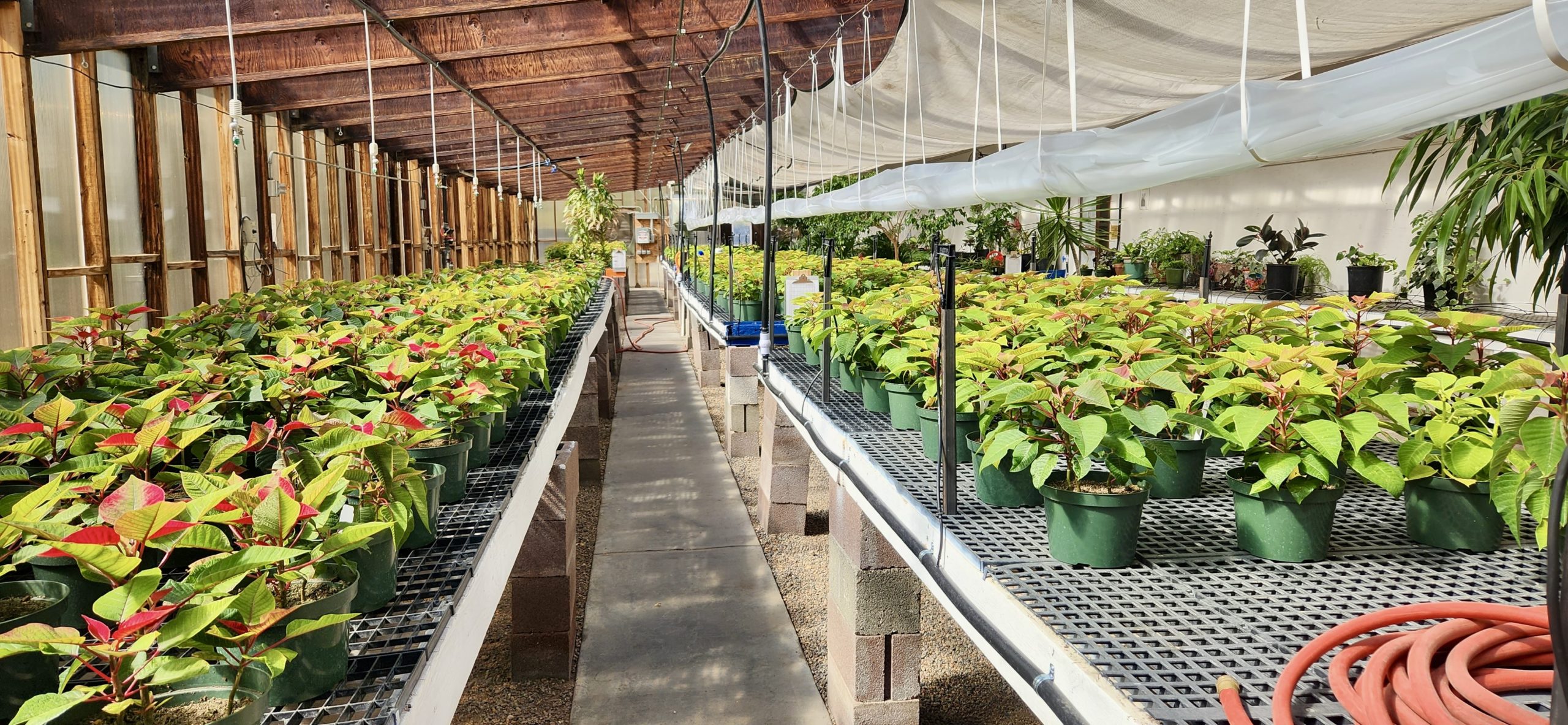
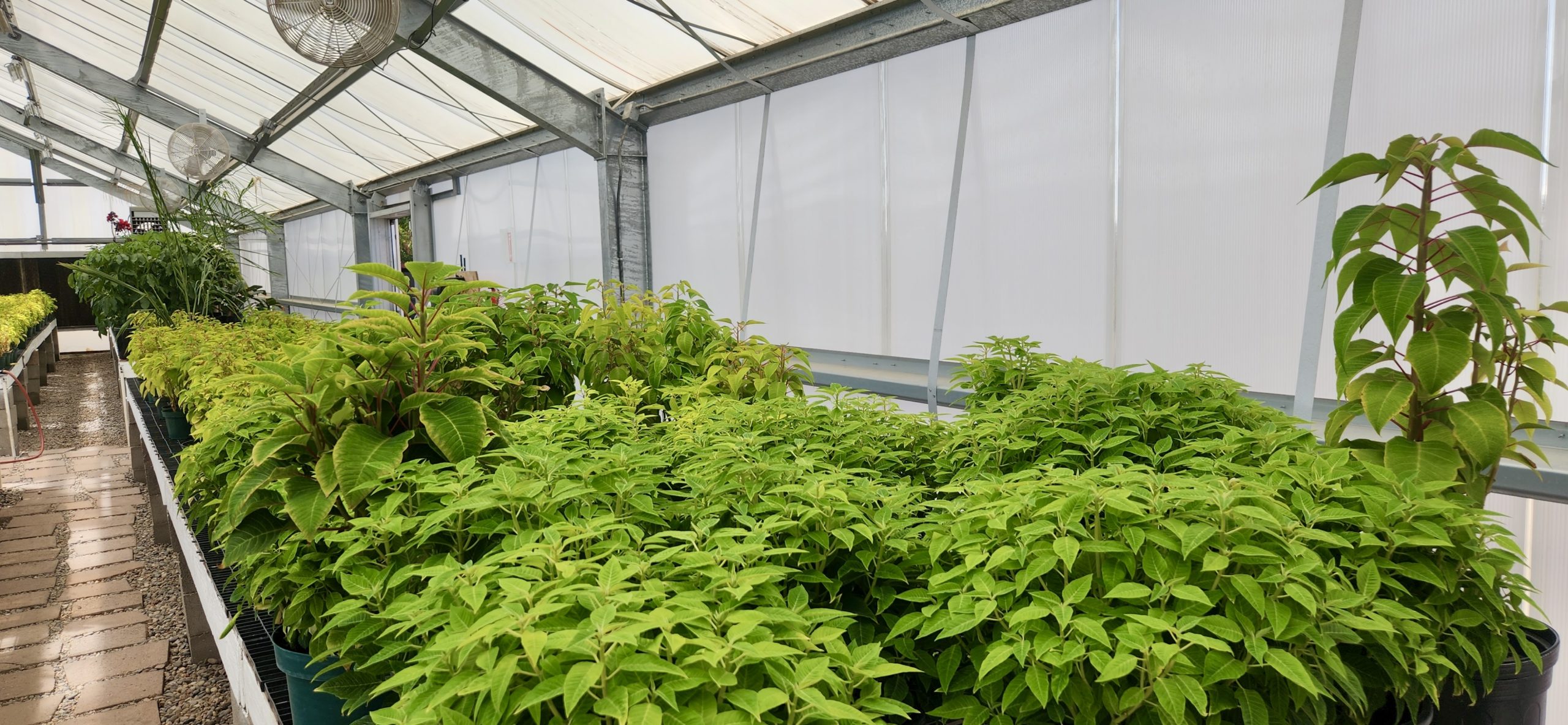
It takes four years to grow the poinsettias from seed, and Humbles said he has to plan in advance. While adopting the seed collection method, he has been able to grow more than 1,200 poinsettias versus the 500 that would usually be bought each year.
“We have an experiment that’s gonna go on where we plant these outside and see if they can survive the winters outside in New Mexico.”
All of the flowers grown over the spring and summer season throughout the city and at the greenhouse get cut and brought back, where volunteers do what’s called deadheading, a process of drying and extracting the seeds that get used the next year. This method has saved the city money and allows for expansions on where the department can plant next year.
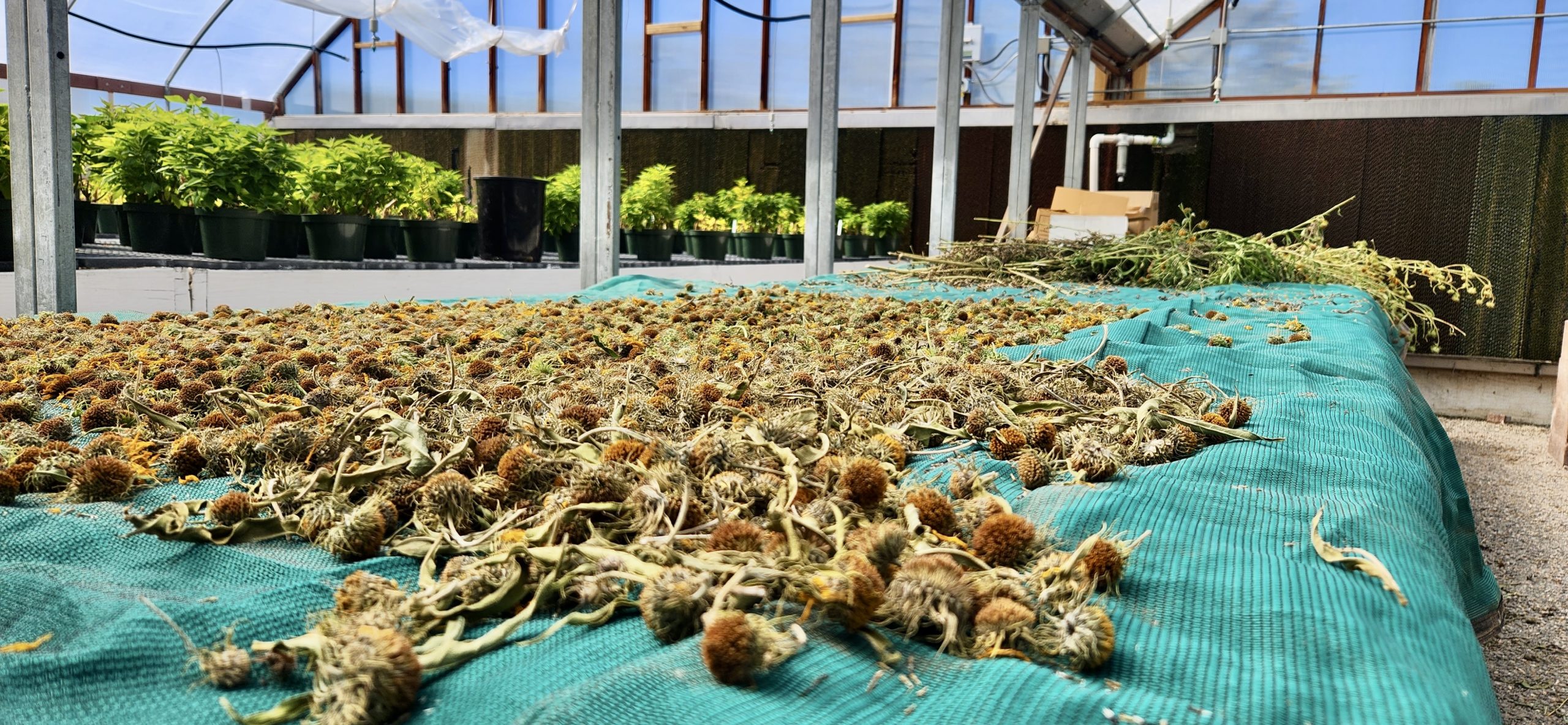
“I like the fact that we can save money and still provide quality plant materials to the city without incurring that cost,” Humbles said.
The greenhouse has also started to grow Forget-Me-Nots for victims of violence in Albuquerque and will be working with city officials to get plants out to people in a showing of support to victims of violence in New Mexico.
Donations and volunteers
The City Parks and Rec. greenhouse program also allows donations. One son wanted to honor his father’s efforts in maintaining more than 1,200 canna lily bulbs his father kept alive for more than 50 years. The son also took care of them for an additional 50 years.
“So yeah, these bulbs are over 100 years old, and although canna lilies thrive in a more tropical climate, we hope to try and get these out at different sites and see how they do,” Humbles said.
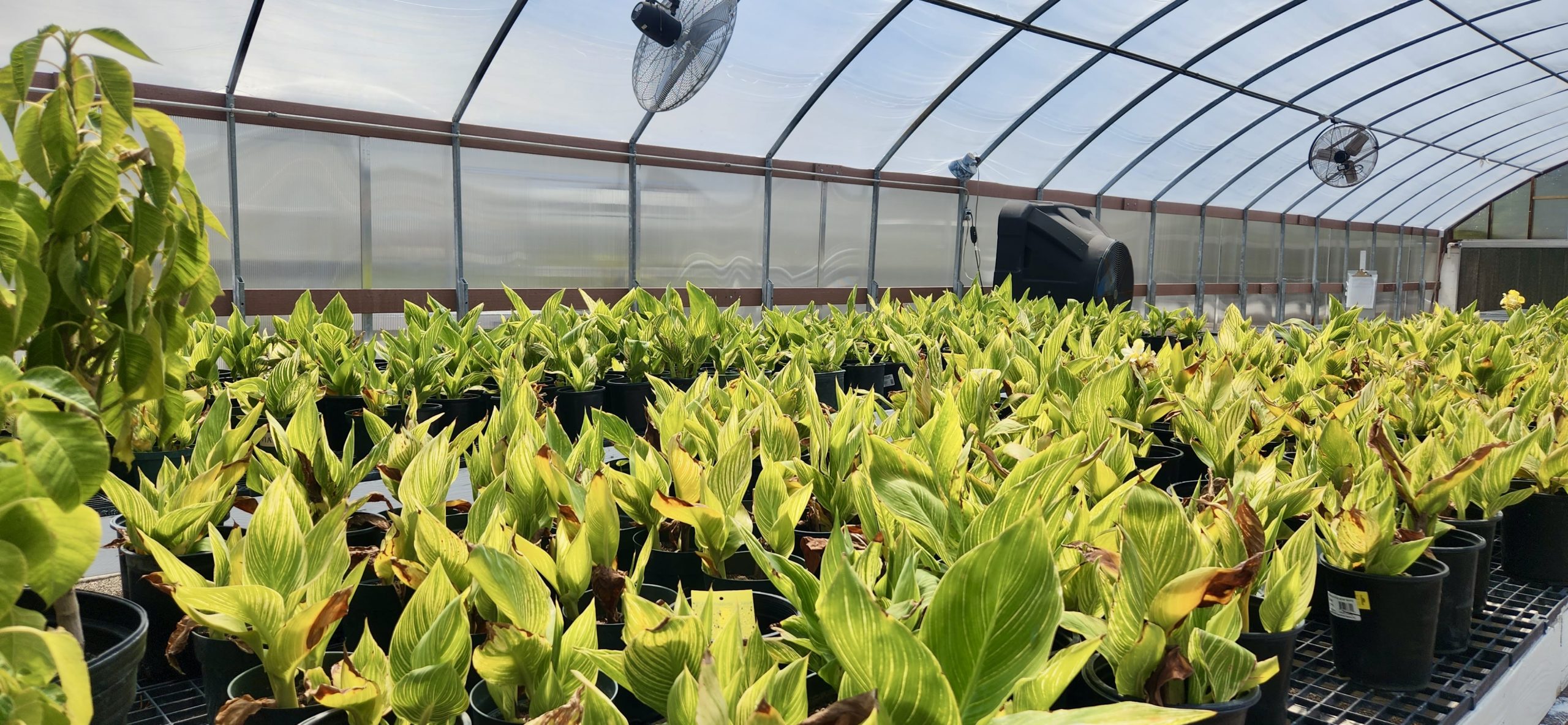
He explained the greenhouse has also had interest about seeds for “flower-bombing” from residents who walk or ride around the city and see potential spots to throw some seeds where flowers could possibly bloom. The process has become a trend the last few years in cities throughout the U.S.
“It is great to see such an interest from people wanting to make the areas they commute through better than a dirt lot and is for everyone to be able to appreciate,” he said.
To find out how you can volunteer at the City Greenhouse or attend its workshops, sign up at oneabqvolunteers.com.

